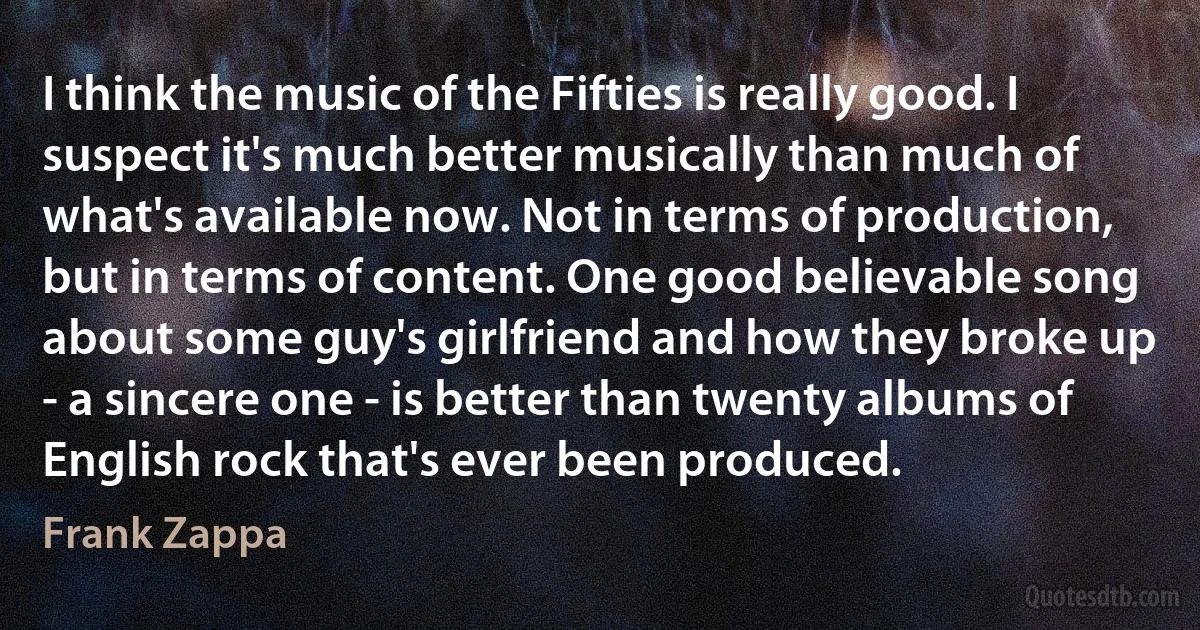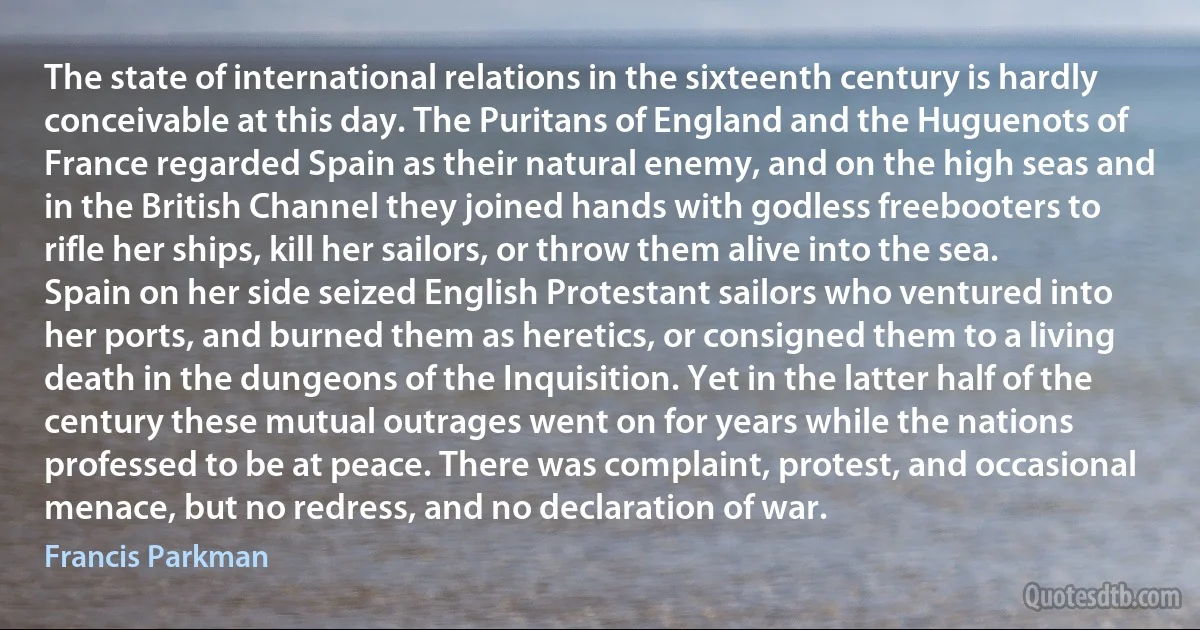English Quotes - page 20
Mah Bow Tan, age 16, took his 'O' levels - six distinctions, two credits. Mr Chiam, age 18 - 1953 I think - six credits, one pass. He passed his English language, not bad. The next year, in 1954, he worked harder, he got a credit for his English. So you see, it's not because he doesn't know English that he found difficult in expressing himself. It's what's inside here *tapping his head*. And you better search your inside here before you cast your votes. Goodbye and good luck.

Lee Kuan Yew
The national character of the three kingdoms was strongly marked in my army. I found the English regiments always in the best humour when we were well supplied with beef; the Irish when we were in the wine countries, and the Scotch when the dollars for pay came up. This looks like an epigram, but I assure you it was a fact, and quite perceptible; but we managed to reconcile all their tempers, and I will venture to say that in our later campaigns, and especially when we crossed the Pyrenees, there never was an army in the world in better spirits, better order, or better discipline. We had mended in discipline every campaign, until at last (smiling) I hope we were pretty near perfect.

Arthur Wellesley, 1st Duke of Wellington
A few decades ago there was much talk of the English officer and the Hindu in the ranks being of the same Aryan blood, because they both spoke widely diverse forms of the great group of Aryan languages. This, of course, did not imply the slightest trace of blood relationship - the Aryan speech of the Hindu had been imposed upon him by his conquerors from the north. Such fallacies were common a generation ago.

Madison Grant
The antipathy of the English settlers to the Indians was far too great to lead to the sort of miscegenation which was encouraged by the French ... In the British colonies the half-breed was looked upon as an Indian ... It was not until within the lifetime of those now living that an infusion of Indian blood became a subject of pride ... unless one makes exception for such isolated tales as the somewhat grotesque Pocahontas tradition in Virginia.

Madison Grant
The boast of the modern Indian that he is of the same race as his English ruler, is entirely without basis in fact, and the little dark native lives amid the monuments of a departed grandeur, professing the religion and speaking the tongue of his long forgotten Nordic conquerors, without the slightest claim to blood kinship.

Madison Grant
The fact that the most arbitrary powers of the English executive must always be exercised under Act of Parliament places the government, even when armed with the widest authority, under the supervision, so to speak, of the Courts. Powers, however extraordinary, which are conferred or sanctioned by statute, are never really unlimited, for they are confined by the words of the Act itself, and, what is more, by the interpretation put upon the statute by the judges. Parliament is supreme legislator, but from the moment Parliament has uttered its will as lawgiver, that will becomes subject to the interpretation put upon it by the judges of the land.

A. V. Dicey
The B[ritish] E[mpire] is a sisterhood of nations-the greatest in the world. Look at this table: There sits Africa-English and Boer; there sits Canada-French, Scotch & English; there sits Australia, representing many races-even Maoris; there sits India; here sit the representatives of England, Scotland & Wales; all we ask you to do is to take your place in this sisterhood of free nations. It is an invitation, Mr. De Valera: we invite you here.

David Lloyd George
From all we have said, it will now be evident, one would think, to the most prejudiced reader that modern English Law, following obsequiously a deluded or apathetic stage of public opinion, has solved the problem of the division of rights and duties between the sexes, by conceding to woman all rights, and imposing on man all duties.

Ernest Belfort Bax
The United States is different because I've spent a lot of time there since, and so there's more of a continuum. It's definitely the U. S. that has the deepest roots in my soul. I spent my childhood believing I was English, and would one day be going home. But when we came back to live here, I started to realise how much of me was bedded somewhere else. Whenever I walk out of an airport in the U. S. and smell the air, a bit of me feels it's coming home.

Michael Marshall Smith
One outcome of the Norman Conquest was the making of the English language. ...the speech of Alfred and Bede, was exiled from hall and bower, from court and cloister, and was despised as a peasant's jargon... It ceased almost, though not quite, to be a written language. ... Now when a language is seldom written and is not an object of interest to scholars, it quickly adapts itself in the mouths of plain people to the needs and uses of life. ...it can be altered much more easily when there are no grammarians to protest. During the three centuries when our native language was a peasant's dialect, it lost its clumsy inflexions and elaborate genders, and acquired the grace, suppleness, and adaptability which are among its chief merits.

G. M. Trevelyan
She regarded it as a first charge of her slender war-budget to see that French and Dutch independence were maintained against Philip. This was secured, partly by English help and by the holding of the seas, and partly by domestic alliance of the Calvinists with Catholic 'politiques' averse to Spanish domination; it followed that an element of liberality and toleration very rare in the Europe of that day made itself felt in France and in Holland in a manner agreeable to Elizabeth's eclectic spirit.

G. M. Trevelyan
In the Stuart era, the English developed for themselves, without foreign participation or example, a system of Parliamentary government, local administration and freedom of speech and person, clean contrary to the prevailing tendencies on the continent, which was moving fast toward regal absolution, centralized bureaucracy, and the subjection of the individual to the State.

G. M. Trevelyan
This is King James Version, which I use and I recommend everybody use if you speak English. I collect other versions of the Bible. I'm not afraid of them; but folks, there's been some very serious changes made in some of these other versions. Many have left out the blood in dozens of places; many have taken away the deity of Christ. Some serious changes. Many have taken out over 200 verses!

Kent Hovind
By the time I came to England at the age of sixteen I'd seen a great variety of landscapes. I think the English landscape was the only landscape I'd come across which didn't mean anything, particularly the urban landscape. England seemed to be very dull, because I'd been brought up at a much lower latitude - the same latitude as the places which are my real spiritual home as I sometimes think: Los Angeles and Casablanca. I'm sure this is something one perceives - I mean the angle of light, density of light. I'm always much happier in the south - Spain, Greece - than I am anywhere else. The English one, oddly enough, didn't mean anything. I didn't like it, it seemed odd. England was a place that was totally exhausted.

J. G. Ballard



